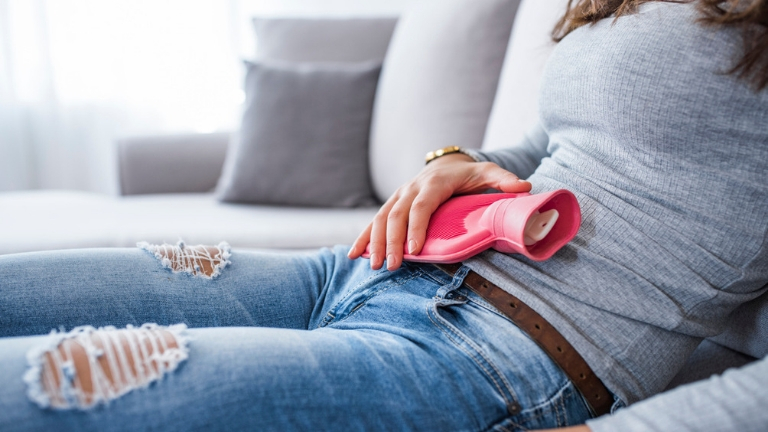One in 3 women suffer from PMS, but there’s no need to suffer in silence. Nutritional director Rick Hay reveals four ways you can help ease your PMS symptoms naturally
Breast tenderness, cramps, insomnia, irritability, cravings, headaches, anxiety, loss of libido, the list goes on, and us women know only too well the impact these symptoms can have on our day-to-day lives affecting not just our physical well being but our emotional well being too.
PMS is one of the most common disorders in women.
‘Premenstrual syndrome’ known in short as PMS, is a collection of symptoms (mentioned above) that affects around 75 percent of menstruating women. In fact, PMS is one of the most common disorders in women.
The exact cause of PMS is uncertain, but what is certain is that PMS affects women during their child bearing years, often worsening during periods of marked hormonal fluctuations such as puberty, post pregnancy, stopping or starting hormonal contraception and the perimenopause.
PMS occurs during the ‘luteal phase’ of the menstrual cycle, that’s two weeks between ovulation and the first day of bleeding (menstruation).
PubMed Health say that during this phase, women may feel a wide range of physical discomforts, such as abdominal pain, abdominal cramping, backache, headaches, bloating, weight gain, breast tenderness, possible sleeping issues and digestive discomfort – basically all the symptoms that cause you to cling to your hot water bottle.
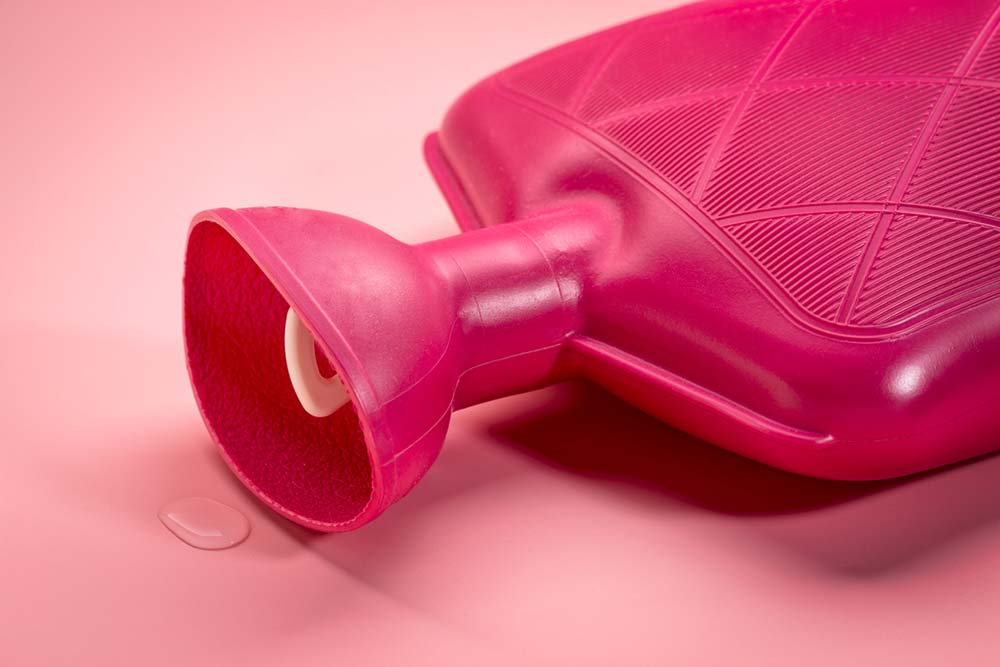
Some women even report feelings of psychological distress during this phase, such as, anxiety, sadness, exhaustion, irritability and low self-esteem. These symptoms aren’t the same for all women, but many of us experience a few or combination of them at some point during our cycle.
Additionally, around one in 20 women, experience more severe symptoms such as depression. This condition is called premenstrual dysphoric disorder (PMDD) and is now included in the Diagnostic and Statistical Manual of Mental Disorders, as a very extreme form of PMS.
Around one in 20 women experience more severe symptoms such as depression.
Many women turn to medicine to help ease their PMS symptoms, but this can cause side effects. Steroids, anti-inflammatory drugs, contraceptives and antidepressants are some examples of medical management for PMS.
Unfortunately, these can increase PMS symptoms or cause fluid retention, nausea, headaches and loss of libido.
But ladies there is light at the end of that PMS tunnel, and Healthista have some excellent news. Studies now show that you can treat symptoms of PMS naturally, with a combination of dietary changes, supplements and herbs rather than relying on medical solutions.
Nutritional director Rick Hay reveals four natural remedies that you can try today to help ease or stop your PMS symptoms.
PMS remedy #1 Try some traditional herbs
Herbs have been used for centuries in traditional medicines and treatments, and if they worked then, who’s to say they won’t work now?
The first natural remedy you can try to help ease symptoms of PMS is the flowering herb, red clover. This traditional herb contains plenty of beneficial key nutrients such as calcium, chromium, magnesium, niacin, phosphorus, potassium, thiamine and vitamin C.
In herbal medicine, red clover is typically used to treat a variety of health issues. For example, it can help with respiratory issues such as asthma, skin disorders such as eczema and psoriasis, inflammatory conditions like arthritis, and women’s health problems such as menopausal and menstrual symptoms. Red clover can assist in helping with high cholesterol and osteoporosis too.
Red clover is also a rich source of isoflavones. Isoflavones are compounds that act as phytoestrogens (plant chemicals that are similar to the female hormone oestrogen). Isoflavone extracts can be found in many dietary supplements and other products, including teas, tablets, capsules and liquid extracts. (These are available in many health stores such as Holland and Barrett).

Hormone changes can affect our body temperature, which is why at a certain time of the month you feel like you are on fire while everyone else is wearing a coat and scarf and thinking nothing of it. This is known as – you guessed it – a ‘hot flush’. Add this hot flush to a headache and a cramping stomach and it is a most unwelcome symptom.
Thankfully, the phytoestrogen, isoflavone (found in red clover) has been associated with a significant reduction in hot flushes when compared to placebo.
A 2017 double-blind, randomised control trial involved 62 peri-menopausal women aged 40–65 who had reported suffering from hot flushes. The women received either red clover extract providing 34 mg/d isoflavones and probiotics or masked placebo formulation, twice daily for 12 weeks.
The trial found that moderate doses of red clover were more effective and superior to placebo in reducing physiological and self-reported symptoms of hot flushes.
Many women also experience breast tenderness, mostly before their period, but if you seem to suffer from sore breasts throughout your cycle then it would be a good idea to give red clover a try as it can also reduce inflammatory symptoms.
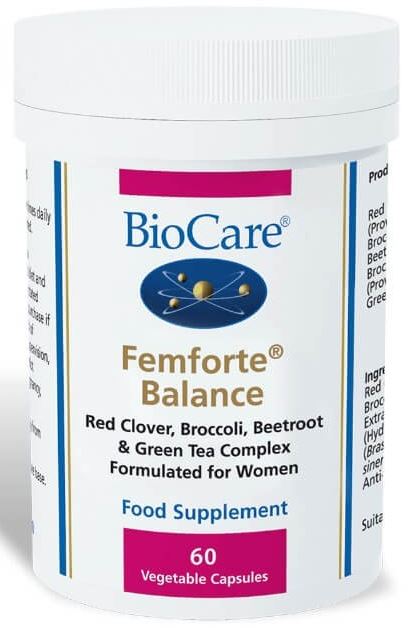
Another traditional herb that can help ease PMS symptoms is agnus castus. This herb is both effective and well researched for the natural relief of PMS. It is used to treat menstrual irregularities associated with both the physical and emotional symptoms.
One study on Japanese patients published in 2014 found that agnus castus dramatically improved irritability, depressed mood, anger, headache, bloating, breast fullness, skin issues, fatigue, drowsiness, and sleeplessness associated with PMS and results were especially good if it was continued for three cycles. Like red clover, agnus castus has also been shown to reduce hot flushes.
Try BioCare’s FemForte® Balance. A potent mix of botanical extracts, suitable for women during and after childbearing age. It contains high levels of red clover, providing a natural source of isoflavones, as well as a mix of green tea, beetroot and broccoli extracts.
PMS remedy #2 Get your B vitamins
Like many other health issues, most of the time we can help alleviate symptoms by making some healthy changes to our diets – which seems to be the most natural solution of them all.
The first diet change you need to make is to reduce the amount of inflammatory foods in your diet, especially for the first two weeks leading up to your period.
Inflammation is the body’s immune system reacting to perceived stimuli. Foods that can exacerbate this pre-period include, sugar (yes, that includes the chocolate that’s practically screaming your name), caffeine, processed foods (especially processed meat), deep fried foods, soft drinks and fruit juices.
Additionally, it might also be wise to cut down on grains like wheat, and dairy foods as these can cause inflammation if you are sensitive to them.
Eating plenty of B-Complex vitamin rich food can help lower your risk of developing PMS by around 35 per cent.
The next thing you need to ensure is that you are getting enough B vitamins into your diet, and this is actually quite easy when you realise the amount of food sources that contain B vitamins.
Food that contain B vitamins include fish, oily fish, pork, nuts, seeds, cheese, almonds, beef and lamb. Vitamin B can also be found in brown rice. Vitamin B6 can be found in sunflower seeds, pistachio nuts, turkey, chicken, dark green leafy vegetables, beans, peas, eggs and seafood. Plus vitamin B12 is found in lean beef, low fat diary, fortified soy and cereal products.
One study, published in the American Journal of Clinical Nutrition found that eating plenty of B-Complex vitamin rich food can help lower your risk of developing PMS by around 35 per cent.
When we are stressed our body uses up our B vitamins, so if you lead a pressured and busy life, you will need to make the extra effort to make sure your B vitamin levels are sustained pre-period. Vitamin B6 is particularly important as this is involved in the regulation of hormonal activity.
PMS remedy #3 Eat or supplement with magnesium
One PMS symptom that many woman may know only too well is poor sleep or insomnia. This can be caused by rising stress levels or increased anxiety that is caused by your time of the month.
If poor sleep is an issue for you, then the mineral magnesium should be taken before bed. This will help to reduce stress and therefore aid with sleep. Not only will it help to decrease stress and anxiety but magnesium also helps with headaches and muscle cramping.
Studies have shown that women taking 400mg of magnesium daily show reduced nervous tension, breast pain, weight gain, sugar cravings, dizziness and headaches associated with PMS.
Good sources of magnesium include leafy greens, seeds, almonds, cashews and peanuts, spinach, brown rice and black beans along with edamame.
Combining both B vitamins (B6) and magnesium can further reduce symptoms of PMS, especially if you are feeling down, anxious or lacking in energy.
Magnesium increases a chemical neurotransmitter in the brain called GABA (gamma-Aminobutyric acid), which encourages relaxation as well as sleep. Low GABA levels in the body can make it difficult to relax and unwind.
Magnesium promotes good sleep by helping us unwind and it’s an important factor in how our body manages its sleep cycle. Indeed, a 2012 study found that 500mg magnesium taken for eight weeks before bed had a positive improvement on insomnia levels.
Additionally, researchers in 2017 published a study in the journal PLoS One and found that adults who received 248 mg magnesium a day for six weeks saw a significant improvement in their levels of depression and anxiety.
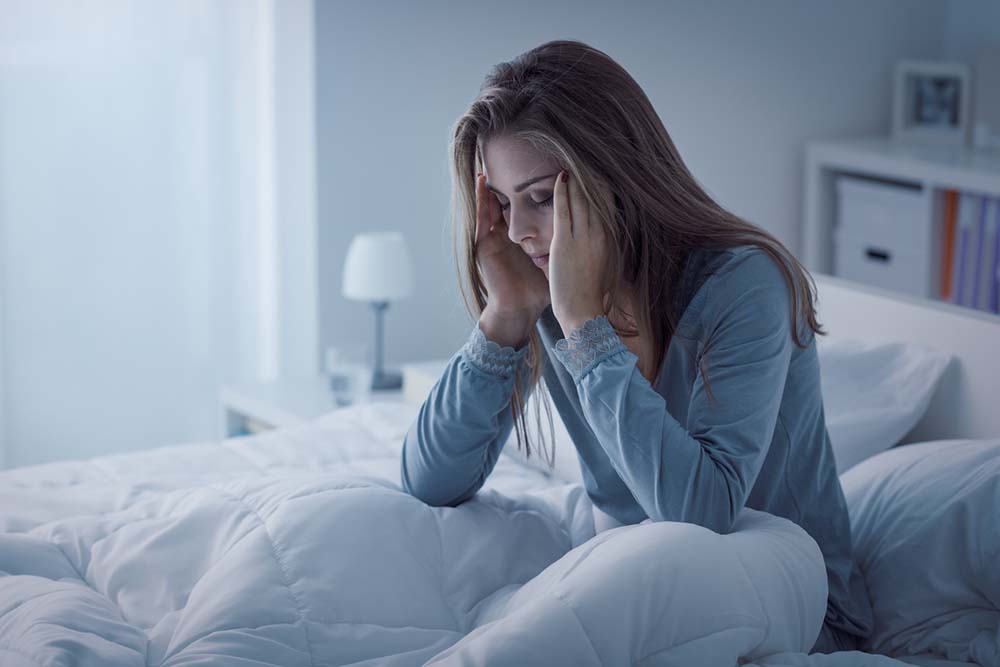
Good sources of magnesium include leafy greens, seeds, almonds, cashews and peanuts, spinach, brown rice and black beans along with edamame. If you’re a trendy avocado on toast fan – avocados and whole wheat are rich in magnesium.
A couple of other diet additions that you may want to consider. Wholegrain carbs such as brown rice and quinoa can help to boost feel good serotonin levels essential to lifting mood and reducing cravings. Plus, try to eat more cruciferous vegetables like broccoli, brussel sprouts, cauliflower, cabbage and kale.
These foods contain high levels of Indole-3-carbinol which helps to remove excess levels of the sex hormone oestrogen, which in excess can cause PMS symptoms.
Try BioCare’s Cysteine Complex which contains indole-3-carbinol plus a combination of n-acetyl cysteine, alpha lipoic acid, pomegranate extract, broccoli extracts and molybdenum.
Remedy #4: Don’t forget about omegas
Another easy way to reduce PMS symptoms is by making sure you are consuming omega fatty acids. Which is good news for fish lovers.
Though it’s not certain how this works, it may be that omega fatty acids affect certain hormones and neurotransmitters like serotonin and dopamine which affect your experience of the mental effects of PMS.
If you would like to supplement with fish oil to up your omega intake, aim to take 3000mgs of fish oil daily – 1000mg with each meal. If you’re a vegetarian, you can take Algal Oil which is fish free but still contains the all important DHA (docosahexaenoic acid) and EPA (eicosapentaenoic acid) elements of omega-3s that your body needs.
People living in countries with the highest intakes of fish oil have the lowest rates of unhappiness and depression. Results from 21 studies, involving over 255,000 people, found that those who ate the most fish and obtained the most DHA and EPA were 22 per cent less likely to develop depression than those who ate the least. This suggests that omegas and fish oil could help lessen PMS symptoms of anxiety and depression.
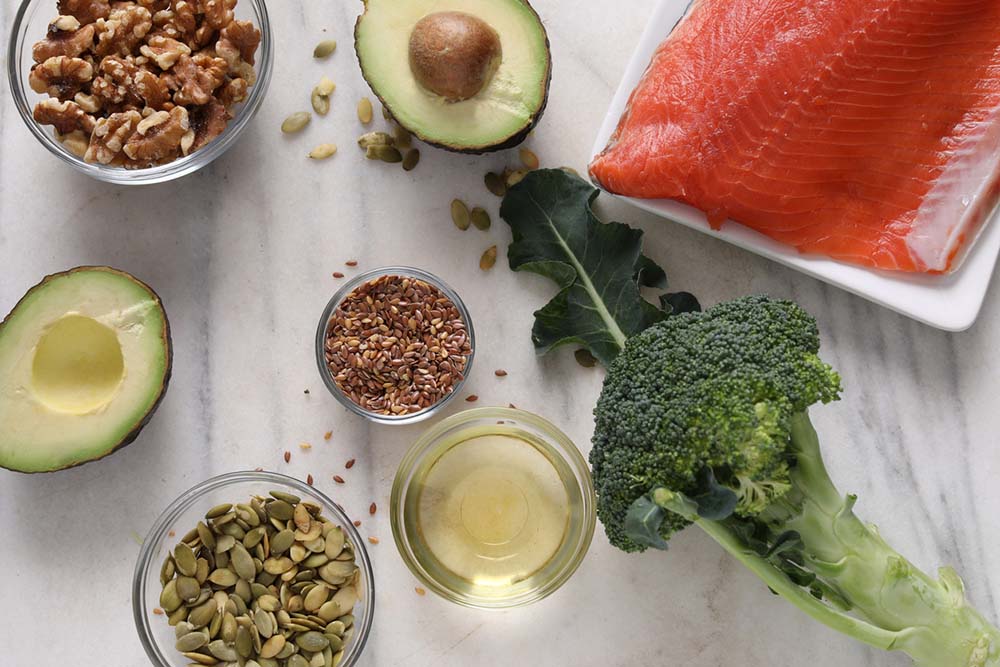
A 2013 double-blind placebo-controlled study on 184 women published in the journal Complementary Therapy Medicine, found that taking 2000mg of omega-3 fatty acids for 45 days reduced the psychiatric symptoms of PMS including depression, nervousness, anxiety, and lack of concentration as well as the more physical symptoms such as bloating, headache and breast tenderness.
In another study, a group of healthy medical students took either omega-3 supplements (2.5 g per day) or placebo. Their blood was tested during low stress periods as well as on days before an exam, and those students who received omega-3 had a 20 per cent reduction in anxiety symptoms.
More Healthista Content:
Hormonal imbalance? These 7 lifestyle hacks will help
3 nutrition tips this TV doctor wants you to know
How can vegans get enough calcium?
How to lose weight: ‘I lost a stone on the F45 8-week Transformation’
WIN an overnight spa stay worth £279 by taking our 5-minute survey
Do you want to experience ultimate relaxation? To be in with a chance to win an overnight spa stay for two including treatments and meals, complete our five minute survey about how your gut health affects your relationships

Like this article? Sign up to our newsletter to get more articles like this delivered straight to your inbox.



